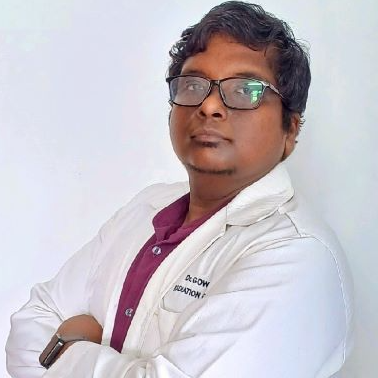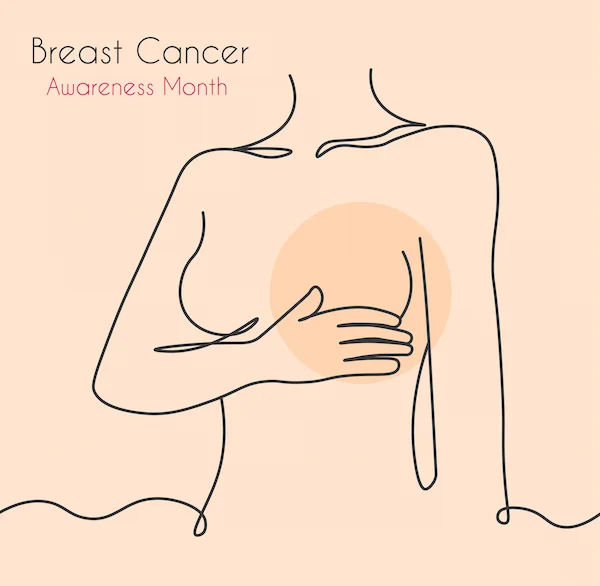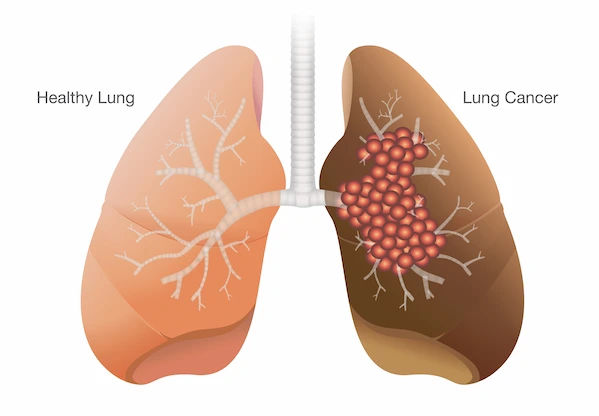Breast Cancer Awareness Month Overview
know about the awareness of breast cancer, common symptoms & causes, how and when to get diagnosed, know early signs, learn about how to stay aware and treatment options.


October is Breast Cancer Awareness Month, a time dedicated to raising awareness about breast cancer, its prevention, early detection, and treatment. This month serves as a reminder for everyone—especially women—to prioritise their breast health.
Breast cancer is one of the most common cancers among women worldwide, but with early detection and proper care, survival rates are high. Let’s break down what breast cancer is, its symptoms, causes, and how you can take steps to protect yourself.
Understanding Breast Cancer
Breast cancer occurs when cells in the breast grow uncontrollably, forming a tumour. While it mostly affects women, men can also develop breast cancer, though it’s rare.
Common Symptoms to Watch For
Early-stage breast cancer may not always show symptoms, which is why regular screenings are crucial. However, some signs to be aware of include:
A lump or thickening in the breast or underarm
Changes in breast size or shape
Nipple discharge (other than breast milk)
Redness, dimpling, or puckering of the skin
Pain in the breast or nipple area
If you notice any of these changes, consult a doctor immediately.
What Causes Breast Cancer?
While the exact cause isn’t always clear, certain risk factors increase the likelihood of developing breast cancer:
Age – Risk increases with age, especially after 50.
Family history – Having close relatives with breast cancer raises risk.
Genetic mutations – BRCA1 and BRCA2 gene mutations can increase risk.
Hormonal factors – Early menstruation, late menopause, or hormone therapy can play a role.
Lifestyle factors – Obesity, alcohol consumption, and lack of physical activity may contribute.
Consult a Top oncologist for the best advice
Early Detection Saves Lives
The key to beating breast cancer is early detection. Here’s how you can stay proactive:
1. Self-Exams
Performing a monthly breast self-exam helps you become familiar with how your breasts normally look and feel. If you notice any changes, report them to your doctor.
2. Clinical Breast Exams
A doctor or nurse can perform a physical examination to check for lumps or abnormalities.
3. Mammograms
A mammogram (an X-ray of the breast) is the best way to detect breast cancer early, even before symptoms appear. Women aged 40 and above should discuss screening frequency with their doctor.
Reducing Your Risk
While some risk factors (like genetics) can’t be changed, you can still take steps to lower your risk:
Maintain a healthy weight – Obesity increases breast cancer risk.
Stay active – Aim for at least 30 minutes of exercise most days.
Limit alcohol – Even small amounts can raise the risk.
Breastfeed if possible – It may help reduce risk.
Avoid smoking – Smoking is linked to many cancers, including breast cancer.
Treatment Options
If diagnosed, breast cancer treatment depends on the type and stage. Common treatments include:
Surgery – Removing the tumour (lumpectomy) or the entire breast (mastectomy).
Radiation therapy – Uses high-energy rays to kill cancer cells.
Chemotherapy – Drugs to destroy cancer cells.
Hormone therapy – Blocks hormones that fuel certain breast cancers.
Targeted therapy – Attacks specific cancer cell features.
Your doctor will create a personalised treatment plan based on your condition.
How You Can Support Breast Cancer Awareness
1. Get Screened – Encourage yourself and loved ones to schedule regular check-ups.
2. Wear Pink – Show solidarity by wearing pink ribbons or participating in awareness events.
3. Donate or Volunteer – Support organisations working on breast cancer research and patient care.
4. Educate Others – Share facts about early detection and healthy living.
Final Thoughts
Breast cancer awareness is celebrated in October. Knowing the causes and symptoms, and who is at risk, will help in stopping the progression of cancer. Proper diagnosis combined with accurate treatment will help. Dealing promptly with the cancer will help you to eliminate it.
Consult a Top oncologist for the best advice
Consult a Top oncologist for the best advice

Dr. Amit Choraria
Surgical Oncologist
18 Years • MBBS, MS (Surgery) Fellow, Surgical Oncology, Tata Medical Center (FSO) Fellow, European Board of Surgery (Surgical Oncology) (FEBS) Fellow, Minimal Access Surgery (FMAS) Fellow, Indian Association of Gastrointestinal Endosurgeons (FIAGES) UICC Fellow, Royal Marsden NHS, London, UK Visiting Scholar, Plastic Reconstructive Surgery, CGMH, Taiwan Fellow, Robotic Surgical Oncology, Vattikuti Foundation, USA
Kolkata
Apollo Multispeciality Hospitals , Kolkata, Kolkata

Dr. Rupam Manna
Radiation Specialist Oncologist
4 Years • MBBS MD(RADIO THERAPY)
Barasat
Diab-Eat-Ease, Barasat
Dr. Sanjay Gupta
Oncologist
15 Years • MBBS, MS(GENERAL SURGERY), MRCS(EDINBURG)
Kolkata
Dr Anuj Poddar Clinic, Kolkata

Dr Gowshikk Rajkumar
Oncologist
10 Years • MBBS, DMRT, DNB in Radiation oncology
Bengaluru
Apollo Clinic, JP nagar, Bengaluru

Dr. Prathyush V
Medical Oncologist
8 Years • MBBS Oncology MD Radiation DNB
Bengaluru
Apollo One Electronic City, Bengaluru



